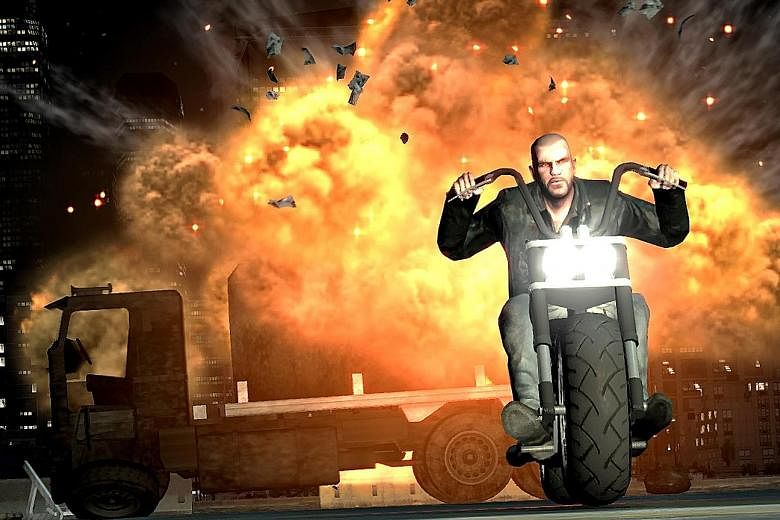MELBOURNE • You are racing a car through a city centre. You are seconds from victory when a missile suddenly explodes and kills you.
By the time you come back to life in the video game, you are far behind the fleet. But your attacker, despite being shot at, stands unharmed.
For players of popular video game Grand Theft Auto Online, scenarios like this are not uncommon when facing competitors using an unauthorised plug-in - called Infamous - that makes them invincible.
But the game's publisher Rockstar Games and parent company Take-Two Interactive Software are revving up their response to what they see as outright cheats.
They have filed at least five lawsuits in the United States, Europe and Australia, with the most recent case including a search-and-seizure order against Christopher Anderson, a man from Melbourne connected to Infamous.
While the move has been welcomed by some gamers, it has also incensed others who argue that video games should be open and collaborative.
The crackdown has also raised broader questions about the reach of copyright law and whether search-and-seizure orders go a step too far in policing online civility.
"Cheaters do tend to ruin the game experience for others, but not everything that is anti-social is illegal, nor should it be," said Mr Mitch Stoltz, a lawyer with Electronic Frontier Foundation, a non-profit entity in San Francisco that defends digital privacy and free speech.
He added that the legal arguments being raised by game publishers pushed the boundaries of copyright law, which generally applies to making permanent copies, rather than temporary modifications.
Changing a game "isn't actually distributing a new version of the game, just as watching a movie through tinted glasses isn't watching a new movie", he pointed out.
There is a lot of money at stake.
Since its release in 2013, Grand Theft Auto V has reportedly made US$6 billion (S$8.3 billion).
Until recently, gamers could download Infamous. Prices ranged from a few dollars to about US$40 for a lifetime membership.
But earlier this year, Infamous was taken offline, following legal action by game developers.
In September, an Australian judge issued orders against Anderson, authorising a freeze of his assets and a search of his home.
The use of search-and-seizure orders in copyright cases is not uncommon in Australia, said Mr Nicolas Suzor, a law and digital media researcher at Queensland University of Technology. But having them obtained in a closed courtroom hearing without the defendant being represented is concerning, he added.
According to Take-Two Interactive's most recent annual report, game spending by fans - on virtual currency or costumes, for example - accounted for 42 per cent of net revenue.
This business model, experts said, is increasingly threatened by "mods", which can offer those same items for free or for an amount that goes to the "modder".
Still, copyright policy may not be the best way to tackle the problem, said Ms Meredith Rose, a copyright expert with Public Knowledge, an advocacy group in Washington.
Banning individual cheaters would be a fairer and more effective move. "The proportionality of the hammer is completely out of scale with the harm being done," she added.
Mr Stoltz agrees, noting that the contracts accompanying downloads of video games and other media products often include clauses that allow for a broad range of "draconian" corporate policing.
When courts worldwide become willing to "transform violations of the fine print into heavy-handed remedies", he noted, it makes everyone vulnerable to "the whims of every company that we do business with online".
NYTIMES

